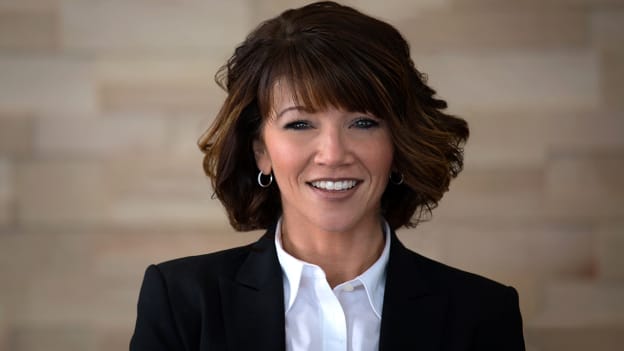Building a unique culture to enhance productivity

From tackling sales and marketing numbers to building an end-to-end employee experience, Mindi Cox, Senior Vice President, People and Great Work, O.C. Tanner, has identified that the “soul” of a company lies within its employees. In an exclusive interaction with People Matters, Cox shares her experiences of creating a true company culture that boosts the employees’ productivity and at the same time gives an organization its purpose, apart from business strategies.
When it comes to a global workplace, HR leaders are faced with the challenge of establishing a team culture. How do you think HR leaders can invest time in boosting the connection between team leaders and members in order to enhance productivity in the workplace?
There are certainly challenges we didn’t have to consider when the global workplace was smaller, but the secret to connection remains the same. Whether you’re talking about two people in a small office or two locations in a multinational corporation! It is about really seeing each other as fellow human beings and respecting each other’s work. We want—and need—to understand each other as people. Empathy is the superpower of leadership and any employee experience.
Town hall meetings are the easiest example of how HR leaders can connect with employees. At O.C. Tanner, we recently held a series of them to discuss about the details of an acquisition. In addition to information about the revenue, products and other assets of the company we were going to acquire, it was very important to me that we included pictures of the employees who worked there. Seeing those faces and talking about the people who actually built the company we were acquiring helped shift our perspective from the technical assets we were gaining to the human ones. Although the bottom line is crucial for any business, I find it is more effective to connect as people and then work together as a team.
In your journey as a sales and marketing professional and now an HR leader with O.C. Tanner, who enables organizations to build a strong culture based on employee experience and engagement, what are some of the major mistakes that talent leaders make? How can HR leaders avoid these pitfalls or overcome them?
There’s a certain mystique surrounding the “brilliant jerk”—the genius employee or boss who is the smartest person in the room, and also the most abrasive. These kinds of people, unpleasant as they can be, get by on an excess of talent or expertise. We talk a lot as HR leaders about the importance of getting the best talent. But doing so at the expense of your culture, by holding someone’s behavior up as excusable for any reason, can have serious consequences for an organization.
Many young companies know from the beginning they want to have great culture, but the way they go about achieving that can be superficial -- supplying free food for employees or putting cool couches in their office space. A lot of these things tend to fall into a category I call “cultural theater”—they look nice and they can be a part of a good culture, but on their own they lack substance. “Good culture” is a nebulous term to begin with, which can make the process of crafting it even harder. I would recommend companies dig deep and define exactly what good culture means to them and what success looks like to their organization. And while it can be tempting to adopt some of the things larger and more established companies do to make their culture great, those things should be used as a North Star rather than a blueprint. Culture is like a fingerprint, unique to every company, and what works for one company may not bring success for another.
Can you share some examples of companies that have done it right when it comes to employee engagement and cultivating workplace cultures where employees feel connected to a greater purpose and believe that their work creates an impact?
It’s incredibly exciting to see how many companies are really owning and connecting with engagement and culture as a critical part of business now. Some of our clients are doing really impressive work in this respect, and I love to meet with them and find out what they’re doing and what’s resonating with their people. I recently spent a half day at a leadership retreat for Swire Coca-Cola—which turned out to be focused almost exclusively on connecting employees with purpose. When a company as tactical and results-oriented as Coca-Cola is investing in employee engagement to drive results, you know it’s something that can work for everyone. There’s an increasing awareness of not just how this type of workforce investment raises the bottom line, but it also makes work a more enjoyable place to be.
What was your ‘aha’ moment when you decided to help organizations enhance their productivity through strong workplace cultures?
I came to HR after starting in sales and marketing. One of my jobs back then was to meet with clients one on one. On one of these trips, I was meeting with Friendly’s Ice Cream CEO and CHRO. I was so struck by not only what they were doing but how they were doing it. This was an organization that could be fairly transactional—they were running an ice cream business with restaurant locations and product distribution. But for them, it was all about the purpose and the fact that they were the conduit for memories. Families chose to celebrate life moments with their products and their locations. The company was taking the time to connect employees of all levels to that incredible experience. It hit me then that that connection was where magic was made in an organization. I wanted to help be a part of that kind of work, and felt HR was where I could accomplish that kind of impact on workplace experience for our people, in the best way.
Can you shed some light on the particular trends that you’ve observed when it comes to the ASEAN workplaces and employee experience? How do you think it has evolved in the last two decades?
The world’s population is centered in the greater Asia region, and increasingly, its talent, too. It’s really interesting to see how deliberate these markets are being in how they cultivate that incredible talent. There’s also great loyalty. We have two locations in India, so we’ve gotten to see that firsthand—despite IT being a high-turnover sector, our IT center in Hyderabad has no turnover in that office. In two years, we’ve lost no one except for one worker whose spouse took a job in Germany. That’s exceptional. And that continuity is helping to produce exceptional results.
We are doing our best to provide an exceptional employee experience for our people in India, but in exchange we’re getting tremendous value. We’re getting people by referral and from specific groups of students we recruit from engineering training centers. I’ve also been extremely impressed by the amount of gender equality in tech in India. The numbers are almost even, whereas in the U.S. and Europe we have a long way to go. All of these factors are combining to make a booming market, and I think in the future we’re going to see something really special emerge because of it.
When it comes to designing a holistic employee experience, what are some primary changes that HR leaders should incorporate going forward keeping in mind the rapidly evolving landscape of the future of work?
There’s been a tremendous change in hiring in the last several years, particularly when it comes to what we look for when looking at potential talent. It’s great if a candidate has a skill set we need at that moment, but we’re looking farther down the road and focusing on the skills that will help that candidate grow as an employee and better our company years ahead. One of the key things I look for is a willingness to learn. Learners, people who are curious, who read, who want to meet and learn from people in other areas, are invaluable in the long term because they are more likely to be willing—even eager—to learn new skills or technologies as they emerge in the future than someone who doesn’t have those qualities.
If someone chooses to trade their most valuable commodity, their time, to work for your company, it is important to make that career a total experience that benefits the employee and the people they care about.
















